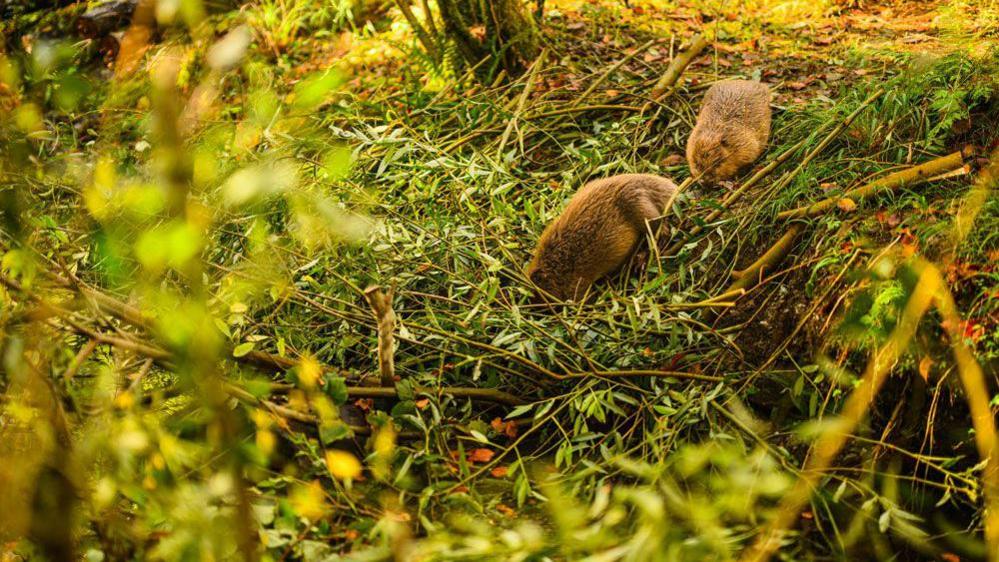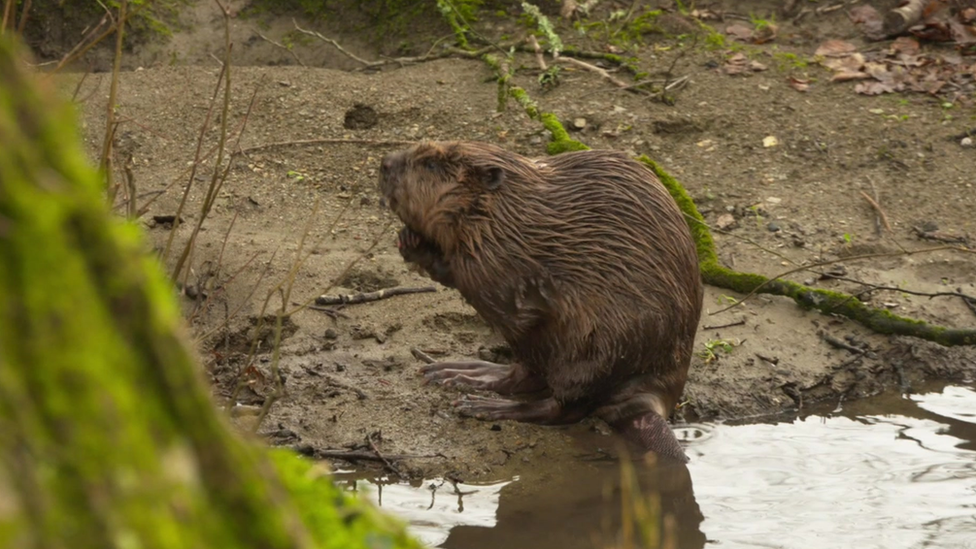Beaver pair reducing flood risks, scientists say

Scientists found that during peak flows the beavers had reduced the flow of water by 23%
- Published
Two beavers are successfully reducing the risk of flooding in Plymouth, scientists have said.
Plymouth City Council said the University of Exeter had studied the pair of Eurasian beavers at Poole Farm since they arrived in October.
Scientists found that during peak flows the result of the beavers' damming, alongside man-made leaky dams, had reduced the flow of water in the Bircham Valley by 23%.
The council said it was believed to be the first research of its kind to study the effect of the animals in an urban environment.
'Flood management solutions'
Councillor Tom Briars-Delve, cabinet member for the environment and climate change, said it was "amazing for Plymouth to be at the forefront of such ground-breaking research".
He said: "We were always clear that there was a scientific reason for bringing the beavers to Poole Farm and to identify the positive effect they are having on our environment is fabulous.
"I'm hopeful that this research can serve to benefit communities at risk of flooding in other urban areas across the county and mark Plymouth as a place that pioneers nature-based solutions to climate change."
Dr Alan Puttock, lecturer and part of the research team, said it was "fantastic to see the beavers creating wetlands".
He said: "Combined with the other nature-based approaches undertaken our results show significant attenuation of downstream flow regimes.
"This project in Plymouth is particularly exciting in demonstrating that beavers can help provide flood management solutions in urban environments."
The beavers are part of the Green Minds project - a council initiative that aims to create urban wild spaces and connect people with nature.
Follow BBC Devon on X (formerly Twitter), external, Facebook, external and Instagram, external. Send your story ideas to spotlight@bbc.co.uk, external.
Related topics
- Published24 December 2023

- Published13 December 2023

- Published20 January 2021
